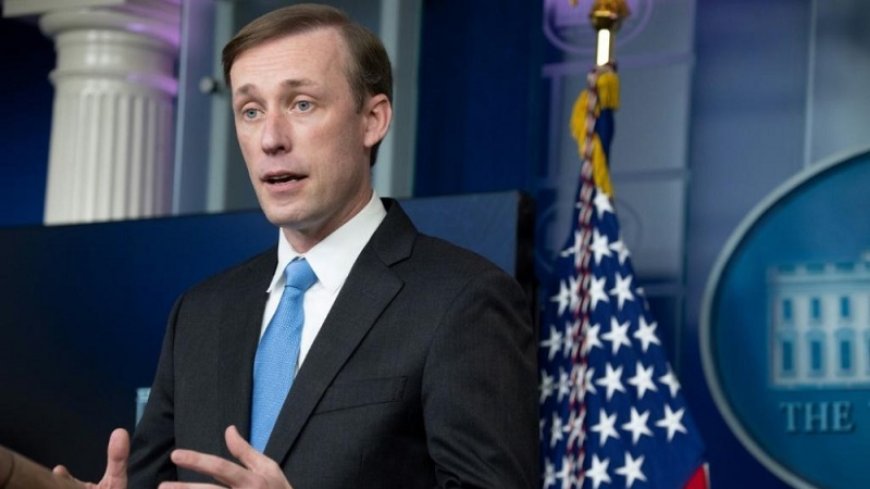US National Security Advisor Jake Sullivan's recent comments spark concerns about a catastrophic military confrontation in the Middle East
Last Thursday, the "Washington Foundation for the Near East" hosted US National Security Advisor Jake Sullivan, wherein he expounded upon the complex geopolitical dynamics of Iran and the broader Middle Eastern region. Sullivan has referred to the 2030s as "a decisive decade" and brought to attention three crucial topics. Firstly, the agreement reached between Iran and Saudi Arabia, which he considered consistent with the policies of the United States, Secondly, the question of normalising relations between Saudi Arabia and Israel, which he has personally travelled to Riyad to pursue; and third, Iran's nuclear dossier, on which he reiterated the Biden administration's commitment to address the issue through diplomatic means.

By: S. Gol-Anbari
Regarding the last topic, this was not something new; however, Sullivan claimed that in the event that Iran endeavours to make a nuclear weapon, the United States shall grant Israel the "freedom of action" to counter it, which could harbinger a new phase in US-Iran relations.
It is evident that the United States has, for quite some time, gave the Zionists implicit "freedom of action" to deal with Iran's peaceful nuclear programme. Nonetheless, it is noteworthy that American officials have made a public acknowledgement of this for the first time, which is unprecedented and may indicate a departure from the White House's pearlier policies. Besides that, Sullivan stated that Iran's nuclear programme "has made great progress" and "poses a significant threat to the security of the region, the world, and the United States of America."
In fact, the prioritisation of diplomatic resolution is undermined by the mutual reinforcement of the two false propositions mentioned above: granting freedom of action to Israel vis-à-vis Iran and maligning Iran's nuclear programme as reaching a "real danger" for the security of the world, including the United States.
Mikhail Ulyanov, who serves as Russia's permanent envoy to international organisations in Vienna, while acknowledging the significance of Sullivan's remarks, particularly in relation to Iran, has noted that they have caused some confusion. The statement made by Ulyanov regarding Sullivan's remarks is subject to varying interpretations as to whether he viewed Sullivan's comments as significant in regards to the prospect of normalising relations between Riyadh and Tel Aviv or the détente between Iran and Saudi Arabia, which the US official deemed to be coherent with US policy.
It is imperative to recognise the crucial implications and subtle nuances embedded within Sullivan's statements, particularly with respect to the possible transition from the United States' present diplomatic strategy concerning Iran's nuclear situation to a more precarious phase.
The exact meaning of Sullivan's veiled threats and the new strategy adopted by the United States and the European Union towards the 2015 Joint Comprehensive Plan of Action [JCPOA] become clearer when we take into account recent reports from both US and European media about the threat of the European troika to activate the trigger mechanism and refer Iran's nuclear dossier to the UN Security Council, as well as the possibility of UN sanctions being reinstated if Iran pursues 90% uranium enrichment.
It appears that the restoration of the 2015 Joint Comprehensive Plan of Action (JCPOA) is no longer viable. Today, the reason for Washington and Europe's lack of focus on confronting Iran over its nuclear programme is due to the ongoing conflict in Ukraine, as they do not seek to give Russia a chance to recuperate its military losses by focusing on another case. As the landscape of the conflict in Ukraine crystallises, the United States and Europe, which are poised to defeat the Kremlin, will likely increase their efforts to challenge Iran and exert more pressure. In the interim, the West will continue to support the Zionist regime and gradually enhance its freedom of action.
According to Sullivan's remarks at the Washington Institute event, the forthcoming decade bears immense importance for the United States in terms of both regional and global affairs. Looking towards the 2030s, it is evident that the United States will confront formidable obstacles in its ongoing geopolitical competition with major global powers, with Beijing being the most prominent among them. This juncture will mark an unparalleled moment in post-World War II history, while the window of opportunity for the Americans to address these challenges will be significantly narrowed.
In conclusion, the recent remarks made by American officials coupled with the threats made by the European Troika and Tel Aviv's malicious activities might be seen as a precursor to the Biden administration's potential decision to abandon once and for all the JCPOA and embark on a new phase of confronting Iran's nuclear programme while easing tensions in other Middle Eastern matters. This dangerous development would certainly have far-reaching implications for the future of the world.













































